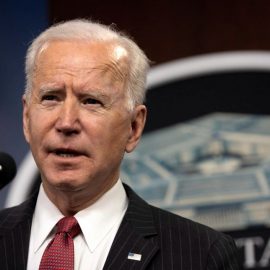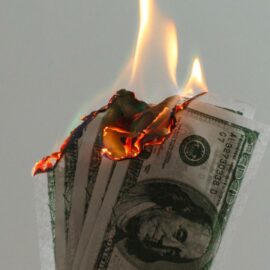

This article is an excerpt from the Shortform book guide to "The White Man's Burden" by William Easterly. Shortform has the world's best summaries and analyses of books you should be reading.
Like this article? Sign up for a free trial here .
What are William Easterly’s views on modern foreign aid efforts? How is the top-down approach to international aid reminiscent of the civilizing mission?
According to the author of The White Man’s Burden, William Easterly, foreign aid is doing more damage than good. He compared the common top-down aid model to the civilizing mission of the 19th century—when Europeans and Americans believed they had to fix countries that they saw as backward.
Here’s why the top-down foreign aid model is doing more harm than good, according to Easterly.
The Neocolonial Mentality
According to William Easterly, foreign aid—specifically, the West’s traditional top-down approach—is inherently undemocratic, imposes utopian social engineering schemes on people who don’t want them and didn’t ask for them, and often exacerbates the problems it’s supposed to solve.
Worse, the top-down model is highly reminiscent of the 19th-century colonial “civilizing mission”—the impetus for the original “white man’s burden,” made famous by Rudyard Kipling’s 1899 poem of the same name, which celebrated European and American imperialism. The imperialists of this era believed that they had a moral duty to bring what they saw as the virtues of European civilization—such as free markets, Christianity, and industry—to “backward” parts of the world (chiefly in Africa and Asia).
In reality, these imperialist projects left behind a dubious legacy in the colonized countries—including economic exploitation and forced labor (with the global slave market being the most extreme example); deliberate exacerbation of ethnic tensions; empowerment of local authoritarians; imposition of arbitrary borders that bore no relation to the ethnic, linguistic, or religious makeup of the territory; and political chaos and civil war.
| Defending the Imperial Legacy Some writers today defend the record of the great European empires like the British Empire. One commentator argues that the British Empire fostered stability, peace, and economic progress in regions that had historically been wracked by poverty and ethnic, tribal, and sectarian violence. Going a step further, scholars like Niall Ferguson write that the British Empire was the engine that enabled the globalization and economic expansion of the late 19th and early 20th centuries—a notable progress for humanity before it was interrupted by the two world wars and Great Depression of the 20th century. Other writers argue that the ancient empires of Rome, Persia, Mauryan India, and Han China all succeeded in bringing together disparate ethnic and religious groups, affording some measure of protection to persecuted minorities, and birthing a cosmopolitan blend of cultures that yielded some of the world’s greatest artistic, scientific, and literary achievements. |
Indeed, Easterly writes, many of the problems in these countries today can be traced back to the legacy of expropriation and subjugation from the colonial era. And still, Easterly sees echoes of this paternalistic mentality in the actions of Western governments, private aid organizations, and bodies like the International Monetary Fund (IMF) and World Bank. He argues that even more extreme manifestations of this neocolonial mentality can be seen in modern “nation-building” actions by the United States in its military invasions and occupations of Afghanistan and Iraq.
The West may no longer justify its actions in such blatantly racist or ethnocentrist terms as their predecessors did, but they are still rooted in the same assumptions—namely, that rich white countries know what’s good for the rest of the world.
| The Orientalist Legacy A major ideological and intellectual component of the European imperial project was the school of thought known as Orientalism. In Orientalism, Edward Said writes that Orientalism has served as the framework through which Western writers, policymakers, and the general public have interpreted and defined the non-European societies of Asia—particularly the Islamic societies of the Middle East—as “the Orient. The central premise is that the Orient is a fundamentally different, exotic, dangerous, unchanging, and “other” place. This concept of a foreign and strange East forms a set of cultural, political, religious, and linguistic contrasts which, in turn, has enabled the West to think of itself as a distinct—and superior—entity. Said writes that Orientalism served as a key ideological linchpin of European colonialism, with Orientalist tropes about Western superiority playing a major role in justifying and legitimating the growth of empire. Orientalist scholarship deeply influenced the actions of key historical figures like Napoleon, who saw themselves as contemporary exemplars of an ancient tradition of Western dominance. |

———End of Preview———
Like what you just read? Read the rest of the world's best book summary and analysis of William Easterly's "The White Man's Burden" at Shortform .
Here's what you'll find in our full The White Man's Burden summary :
- How the global humanitarian aid system is fundamentally flawed
- Why bottom-up aid models work much better than top-down models
- Why the West can't change bad governments






